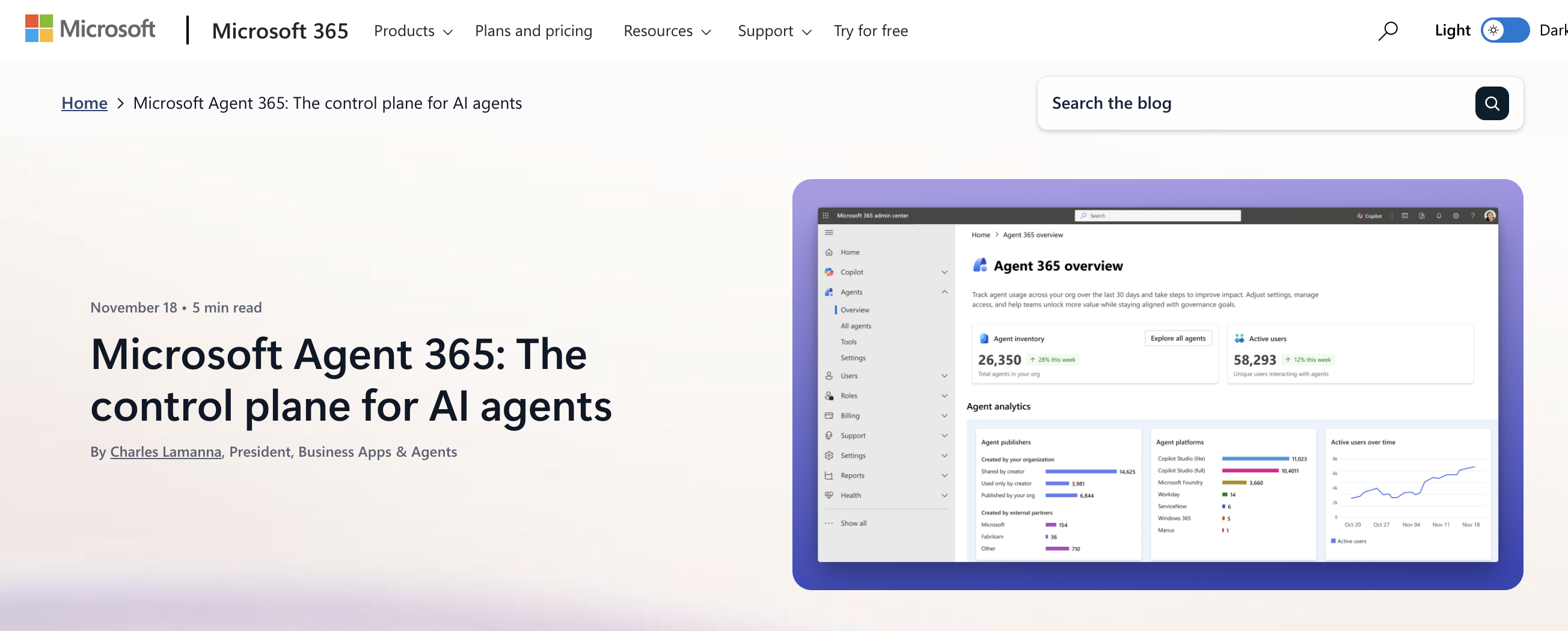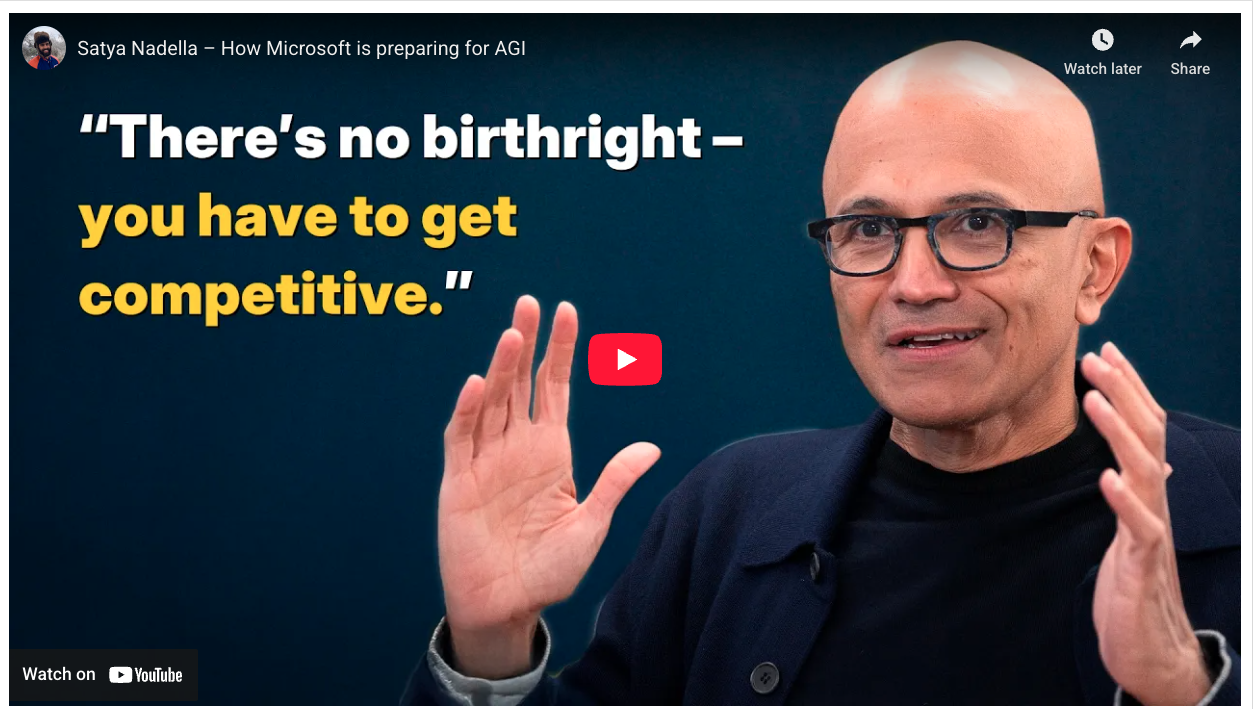Imagine walking into your first day at a new job and getting not just a laptop and a badge, but an entire team of AI agents ready to work for you. That's exactly what Microsoft is building.
At Microsoft Build 2025, the company just dropped a massive update to Microsoft 365 Copilot that's going to make your work life look nothing like it does today. The Neuron sat down with Aparna Chennapragada, Microsoft's Chief Product Officer of experiences and devices, to dive deep into the future of workplace AI.
Check out the full half-hour interview on our YouTube channel.
The Evolution of AI at Work
Microsoft's journey with AI assistants has been methodical. "At first, we brought AI to where you already work," Chennapragada explains. That meant integrating AI into familiar tools like Teams, Outlook, Word, Excel, and PowerPoint. Now, they're taking a giant leap forward.
Fine-Tuning: The Game-Changer
The most exciting development is Copilot Tuning—a low-code solution that allows organizations to train AI models using their own data, workflows, and processes. No data science team required.
Here's why this matters:
- Companies can create AI agents that truly understand their unique business
- Agents can reflect specific industry expertise
- Customize AI to match company voice, style, and specific needs
A concrete example: A legal firm can create an agent that:
- Understands their specific document structures
- Reflects the firm's unique communication style
- Automates document creation
- Drafts arguments that blend institutional knowledge with client-specific context
Multi-Agent Orchestration: AI Teamwork Reimagined
"Multi-agent orchestration enables agents to exchange data, collaborate on tasks, and divide their work based on each agent's expertise," Chennapragada explains.
Imagine this scenario: You're onboarding a new employee. Instead of you managing every detail, agents from HR, IT, and marketing collaborate seamlessly:
- HR agent prepares welcome materials
- IT agent sets up accounts and access
- Marketing agent creates initial team introduction
- Compliance agent ensures all onboarding protocols are followed
Beyond Efficiency: The Cognitive Leap
Chennapragada shared a personal insight that reveals the true potential. Her researcher agent doesn't just complete tasks—it makes connections humans might miss.
"The agent suggested topics for my meeting based on previous interactions," she explains. "It highlighted points my boss had shown interest in previously—connections I might have overlooked."
The Numbers Tell a Story
Microsoft's vision isn't just theoretical. Early adopters are seeing remarkable results:
- Wells Fargo: AI agent supports 35,000 bankers
- Reduced information search time from 10 minutes to 30 seconds
- T-Mobile: Created an agent that instantly assembles product info from 20 manufacturers
- HCLTech: Resolved support cases 40% faster
- Redeployed 30% of a 500-person support staff
The Infrastructure of Intelligence
Microsoft is building a robust ecosystem for AI agent development:
- Copilot Studio: Low-code agent creation
- Azure AI Foundry: Access to 1,900+ models
- Microsoft Entra Agent ID: Secure agent management
- Purview Information Protection: Data security
"We're democratizing the ability to create AI tools," Chennapragada notes. "Just like the internet didn't have just one or two websites, AI won't have just a few agents."
The Bigger Vision: Humans as Directors, Not Doers
Chennapragada's most profound insight? We're shifting from being task-doers to task-directors.
"I think of AI as a jetpack for the mind," she says. "We're moving from manually completing tasks to strategically orchestrating AI to solve complex problems."
Looking Ahead: The AI Agent Ecosystem
Microsoft projects businesses will have 1.3 billion AI agents by 2028. These won't just be tools, but intelligent collaborators that fundamentally expand human capabilities.
Security and Trust: The Foundation
Microsoft is acutely aware that AI must be built on a foundation of trust:
- Secure agent identities
- Comprehensive data protection
- Compliance-first approach
"It's really important for us to do this in a way that's secure, safe, and compliant," Chennapragada emphasizes.
Our Take
Microsoft is playing a long-game strategy that could fundamentally reshape workplace productivity. While others chase headlines with flashy demos, Microsoft is building the infrastructure for a new way of working.
Our prediction: Within 18 months, having an AI agent team will be as standard as having a company email. The real competitive advantage will go to organizations that can effectively "manage" their AI agents and rapidly upskill their workforce.
The future of work isn't about AI replacing humans. It's about humans and AI working together in ways we're just beginning to imagine.







